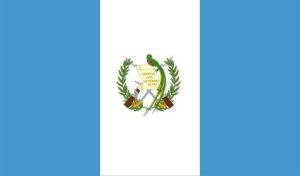Countries where divorce is illegal in the world: Divorce is a legal process that allows married spouses to end their unions. When the bond of marriage is broken and all of the parties involved are no longer subject to each other’s legal obligations and liabilities, the marriage is declared to be null and void.
Even though each nation has its own divorce laws, in most circumstances the court must authorize the divorce before it can be finalized. However, seeking a divorce may be unlawful or outlawed in some countries, so couples must discover alternative methods to end their marriages or seek divorce abroad.
In these countries, divorce is frequently discouraged or downright forbidden by cultural or religious beliefs. Additionally, several of these nations have laws that forbid divorces from occurring in marriages. In this article, we’ll take a closer look at some of the nations that either restrict or outright forbid divorce.
Recommended: Most Powerful Guns In The World
Top 8 Countries Where Divorce Is Illegal/Restricted In The World
1. Philippines: Philippines is the first country on our list of nations where divorce is illegal. The Philippines prohibits divorce because it upholds the teachings of the Catholic Church, which sees marriage as a sacrament and a binding partnership. Apart from the Vatican and Malta, the Philippines is the only nation in the world where divorce is not accepted.

Even Filipino residents who live overseas must abide by the law. Legally married Filipino citizens who divorce while living overseas do not ever have their divorces recognized in the Philippines. Only when a non-Filipino divorces a Filipino spouse while overseas is a divorce legitimately recognized in the Philippines. In the Philippines, however, there have been ongoing talks and initiatives to legalize divorce, particularly for situations involving abuse and irreconcilable disagreements.
2 Malta: In Malta, divorce is not currently recognized by the law. It is the only country in Europe that does not recognize divorce, while it does permit the annulment of a marriage in specific situations. The nation, which is predominately Roman Catholic, prohibits the divorce of parties to a legally legitimate marriage.

An annulment, which is the Catholic Church’s statement that the marriage was void from the start, is required for couples who want to dissolve their union. In certain instances, such as when one of the parties was already married, the union was not fully consummated, or one of the parties was forced into the union, an annulment may be granted. Despite this, there has been continued political and social discussion about divorce in Malta, with some advocating for the country to legalize it.
Recommended: Most Beautiful Birds In the World
3. Vatican City: The Vatican was established as an enclaved sovereign city-state in 1929 by the Luteran Treaty. This ecclesiastical city is under the control of the pope, hence all Catholic doctrine and laws are in force there. Divorce is not recognized as a legal proceeding in Vatican City because it is an ecclesiastical state and is ruled by the Catholic Church. The Catholic Church prohibits divorce because it sees marriage as a lifelong commitment. When a Catholic marriage is found to be unconstitutional, the Church may decide not to grant the couple a divorce but instead to deem the union null and void.

This means that those who were wed in Vatican City and wish to end their marriage must request an annulment through the Catholic Church rather than petition for a divorce through the civil courts. An annulment can be obtained through a complicated process that may include witness testimony, the submission of extensive documents, and evaluation by various Church tribunals. There is no legal ground for divorce in the Vatican; couples may only choose to have their marriages annulled.
4. Dominican Republic (ONLY ALLOWS ANNULMENTS): In the Dominican Republic, annulments are the only form of ending a marriage because the country’s legal system does not recognize divorce as a means of dissolving a marriage.

The annulment process is often used as a way to declare a marriage void or invalid from its inception. This is due to the influence of the Catholic Church and its teachings on the sanctity of marriage, which have had a significant impact on the country’s laws and cultural beliefs.
Recommended: Most Aesthetic Cars in the World
5. Haiti (ONLY ALLOWS ANNULMENTS UNDER CERTAIN CIRCUMSTANCES): Due to the influence of the Catholic Church, which sees marriage as a holy connection that should not be readily destroyed, divorce has historically not been permitted in Haiti. However, annulments are permitted in some cases, such as those involving marital fraud, coercion, or medical incapacity, as they are viewed as a way to end a union that was never legally lawful, to begin with.

This contrast between annulments and divorce reflects the religious and cultural norms of Haiti, where divorce is still frowned upon and the Catholic Church has a strong influence. In Haiti, the procedure to get an annulment can be drawn-out and complicated, frequently needing judicial approval and the participation of religious officials.
6. Guatemala (RESTRICTED AND DIFFICULT TO OBTAIN): Divorce is both illegal and difficult to obtain in Guatemala due to cultural and religious traditions that place great importance on matrimony and forbid divorce.

The difficulties are made worse by the fact that Guatemala’s divorce laws are typically complex and protracted. The nation’s conservative laws, which place a strong emphasis on the protection of the family unit, make it challenging for people to obtain a divorce, even in cases of domestic violence or irreconcilable differences.
Recommended: Hardest Sports In The World
7. Sudan (ONLY ALLOWED IN LIMITED CIRCUMSTANCES): Divorce in Sudan is only legal in certain situations due to the influence of Islamic law on the country’s legal system. In Sudan, issues relating to personal statuses, such as marriage, divorce, and inheritance, are controlled by Islamic law. Islamic law states that divorce is a last resort and is only permitted in certain circumstances, such as when the husband is unable to provide for his family or when it can be proven that the wife has physically or mentally mistreated him or her.

Due to strict legal requirements and drawn-out procedures, getting a divorce in Sudan could also be difficult. The low divorce rate in the country can be attributed to this as well as the stigma associated with divorce in society and culture.
8. Lebanon (RESTRICTED, WITH COMPLICATED REQUIREMENTS FOR OBTAINING A DIVORCE): Divorce in Lebanon is challenging to obtain due to a confluence of religious and civil restrictions. The country has a complex system of laws governing one’s personal status that are dependent on one’s religious affiliation. Christian law, for instance, handles issues like marriage and divorce differently than Sunni and Shia Muslim law.
Divorce is often thought of as a last resort and is only legal in certain situations. Due to the strict legal requirements and several steps that must be performed, getting a divorce in Lebanon can also be challenging. The nation’s restricted access to divorce is a result of this as well as societal and cultural norms that ban it.
Recommended: Richest Pastors In The World And Their Networth 2023
Conclusion
In conclusion, several countries, including the Philippines, Malta, and the Vatican City, forbid divorce. On this list, some nations simply permit annulments, while others place severe limitations on divorce. However, there are significant differences in divorce rules and attitudes between countries and even within regions. While some nations strictly forbid divorce, others have more lenient regulations that make the process simpler. In the end, divorce’s legality is a complicated topic that is influenced by several elements, such as governmental systems, cultural traditions, and religious views.

Edeh Samuel Chukwuemeka, ACMC, is a lawyer and a certified mediator/conciliator in Nigeria. He is also a developer with knowledge in various programming languages. Samuel is determined to leverage his skills in technology, SEO, and legal practice to revolutionize the legal profession worldwide by creating web and mobile applications that simplify legal research. Sam is also passionate about educating and providing valuable information to people.